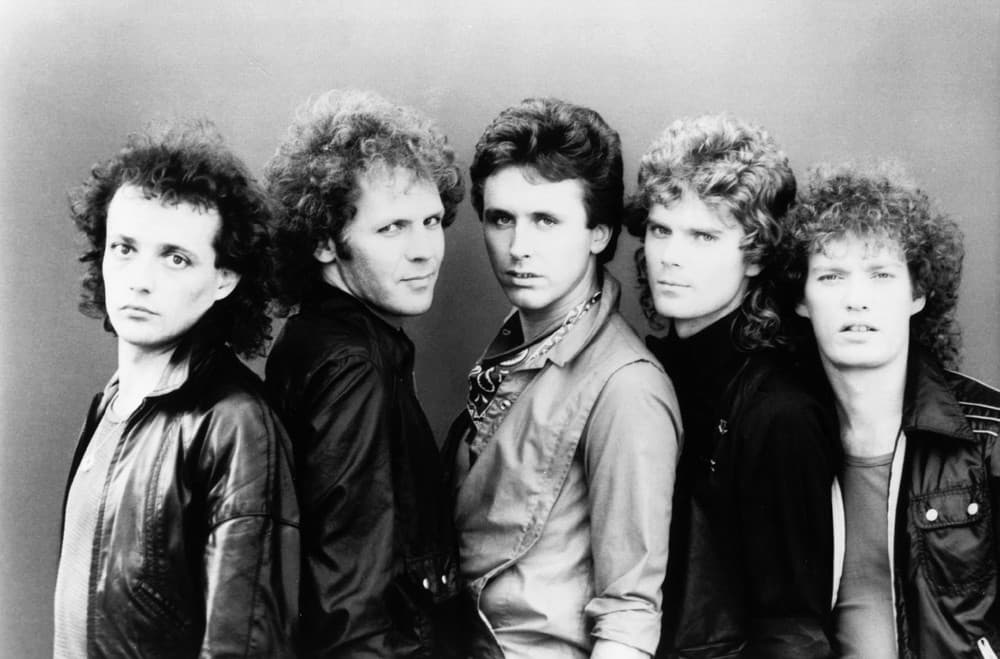
A Ballad of Yearning and Devotion: Heaven in Your Eyes by Loverboy
In the realm of power ballads that defined the mid-1980s, Loverboy‘s Heaven in Your Eyes stands as a poignant testament to deep affection and the vulnerability that accompanies it. Released on July 17, 1986, this evocative song quickly resonated with audiences, climbing to the number 12 spot on the Billboard Hot 100 chart in the United States and reaching number 24 on the Canadian RPM Top Singles chart. Its inclusion in the iconic soundtrack of the 1986 film Top Gun undoubtedly amplified its reach, embedding itself into the hearts of a generation captivated by soaring jets and heartfelt romance. Though not initially featured on a Loverboy studio album, it later found a home on their 1989 greatest hits compilation, Big Ones, solidifying its place in their impressive discography.
The story behind Heaven in Your Eyes is as compelling as the melody itself. While the exact creative spark might be shrouded in the mists of time, the song emerged during a period when power ballads were a staple of the airwaves, capturing the emotional core of love and longing. Loverboy, a Canadian rock band known for their energetic anthems and arena-ready sound, showcased a different facet of their artistry with this tender offering. The collaboration on the songwriting credits includes Paul Dean, John Dexter, Mae Moore, and the unmistakable vocals of Mike Reno, suggesting a confluence of talents that shaped its heartfelt delivery. It’s fascinating to note that Mae Moore, a respected Canadian singer-songwriter in her own right, contributed to a song that would become such a significant hit for a rock band, highlighting the diverse influences that can often coalesce into a timeless piece.
The meaning of Heaven in Your Eyes is beautifully transparent, a direct and sincere expression of profound love and devotion. The lyrics paint a picture of someone who finds solace and ultimate happiness in the gaze of their beloved. Phrases like “I can tell by the look in your eyes, you’ve been hurtin'” suggest a past vulnerability in the subject of the song, making the narrator’s unwavering affection and promise of protection all the more meaningful. The recurring declaration, “I can see heaven in your eyes,” elevates the loved one to an almost celestial status, implying that their presence and love are the ultimate source of joy and peace. It speaks to the transformative power of love, the ability of one person to be the anchor and the guiding light for another.
For those of us who remember the era of mixtapes and slow dances, Heaven in Your Eyes evokes a powerful sense of nostalgia. It transports us back to a time when emotions were worn on our sleeves, and a heartfelt ballad could articulate feelings that words often failed to capture. The sincerity in Mike Reno’s voice, coupled with the gentle yet powerful instrumentation, created an atmosphere of intimacy and tenderness that resonated deeply. It was a song that soundtracked countless romantic moments, a reminder of the heady rush of first love and the enduring comfort of a deep connection. Even decades later, the opening chords can stir memories of youthful dreams and heartfelt promises, a testament to the song’s enduring emotional resonance. It serves as a gentle reminder of a time when music often spoke directly to the heart, offering solace and a sense of shared experience in the universal language of love.